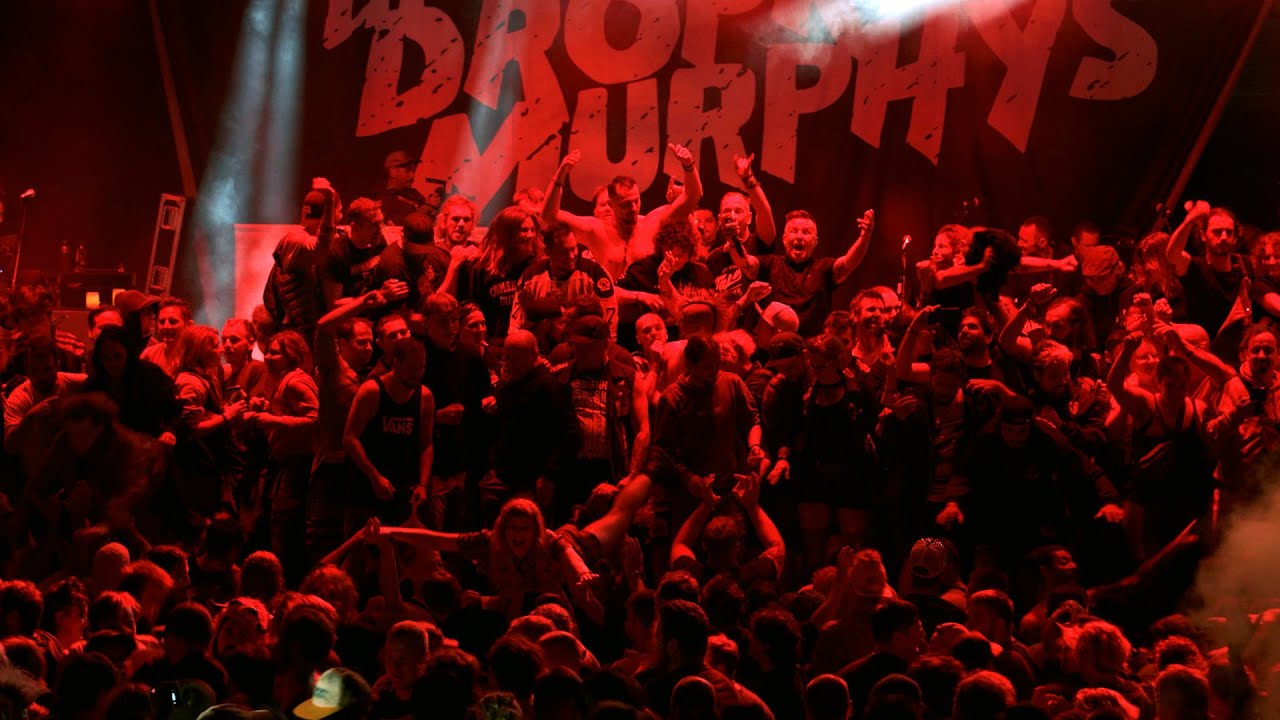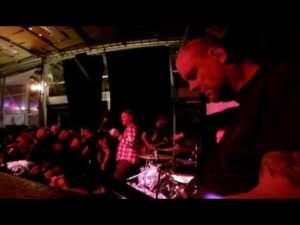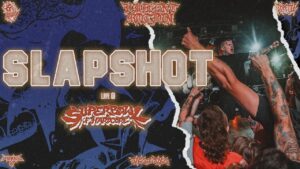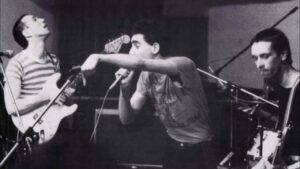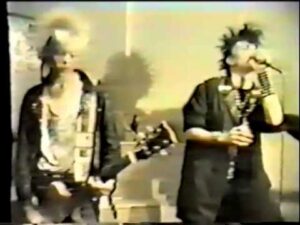Formation & Members
Rose Tattoo, known in Japan as ローズ・タトゥー, emerged from the vibrant Australian music scene in 1976. The band was founded by Peter Wells, a former member of the band Buffalo, who envisioned a sound that would fuse the raw energy of punk with the gritty essence of rock ‘n’ roll. The lineup solidified with the recruitment of frontman Angry Anderson, whose distinctive voice and charismatic stage presence became central to the band’s identity. The original lineup also included guitarist Mick Cocks, drummer Dallas “Digger” Royall, and bassist Ian Rilen. This core group would become synonymous with the band’s hard-hitting sound and rebellious spirit.
Throughout their history, Rose Tattoo saw various lineup changes, particularly following the untimely deaths of some original members, including Royall and Wells. Despite these losses, the band continued to attract talented musicians such as guitarist Rob Riley and bassist Geordie Leach, each contributing to the band’s evolving sound while maintaining its hard-edged roots.
Musical Style & Characteristics
Rose Tattoo is often categorized within the punk and hardcore genres, but their musical style is a unique amalgamation that defies simple classification. At their core, Rose Tattoo embodies the raw power of rock ‘n’ roll coupled with the rebellious ethos of punk. Their sound is characterized by gritty guitar riffs, driving rhythms, and Anderson’s raspy, powerful vocals. The slide guitar work, primarily by Peter Wells, added a bluesy layer that further distinguished their sound from other punk bands of the era.
Their music often explores themes of working-class struggles, defiance, and resilience, resonating deeply with audiences who appreciated their no-nonsense approach and authentic storytelling. Tracks like “Bad Boy for Love” and “Rock ‘n’ Roll Outlaw” became anthems that captured the spirit of rebellion and the raw energy of their live performances.
Key Works & Discography
Rose Tattoo’s discography is a testament to their enduring appeal and musical prowess. Their self-titled debut album, released in 1978, set the stage for their success, featuring hits like “Nice Boys” and “The Butcher and Fast Eddy.” The album was a critical and commercial success, cementing their reputation as one of Australia’s most formidable rock bands.
The follow-up album, “Assault & Battery” (1981), continued to build on their success, showcasing their ability to blend hard rock with punk sensibilities. Tracks like “Out of This Place” and “Assault & Battery” further solidified their status internationally. Over the years, the band released several more albums, including “Scarred for Life” (1982) and “Beats from a Single Drum” (1986), each contributing to their rich legacy.
In addition to studio albums, live recordings such as “25 to Life” (2000) captured the electrifying energy of their performances, beloved by fans for their raw intensity and authenticity.
Influence on Other Bands/Scenes
Rose Tattoo’s influence extends far beyond their native Australia, impacting the global rock and punk scenes. Their gritty sound and unapologetic attitude inspired a generation of musicians, including bands like Guns N’ Roses, who have cited Rose Tattoo as a significant influence. The raw energy and straightforward rock ‘n’ roll ethos of Rose Tattoo resonated with bands seeking to capture the same spirit of rebellion and authenticity.
In particular, Rose Tattoo’s emphasis on strong, narrative-driven lyrics and powerful live performances set a standard for many punk and rock bands that followed. Their music continues to be celebrated in rock circles worldwide, with many contemporary bands acknowledging their debt to the pioneering sound of Rose Tattoo.
Breakups or Reunions
Throughout their career, Rose Tattoo has experienced several breakups and reunions, often spurred by personal challenges and the tragic loss of band members. The band initially disbanded in the mid-1980s, following the release of “Beats from a Single Drum,” as members pursued other projects and dealt with personal issues.
However, the enduring appeal of their music and the unwavering support of their fanbase led to several reunions, starting in the early 1990s. These reunions allowed the band to continue performing and recording new material, often with a mix of original and new members. Despite these changes, the spirit of Rose Tattoo remained intact, driven by Angry Anderson’s leadership and the band’s commitment to their musical roots.
Current Reputation & Legacy
Today, Rose Tattoo is regarded as one of the seminal bands in the punk and hard rock genres. Their raw, unfiltered approach to music and their ability to capture the rebellious spirit of rock ‘n’ roll have earned them a dedicated fanbase and critical acclaim. They are celebrated not only for their influential sound but also for their resilience and ability to adapt to the ever-changing music landscape.
Rose Tattoo’s legacy is evident in the continued interest in their music, with new generations discovering their powerful anthems and energetic performances. The band’s influence can be seen in the work of countless rock and punk bands that followed, ensuring that the spirit of Rose Tattoo lives on in the music world.
Conclusion
Rose Tattoo, or ローズ・タトゥー as they are known in Japan, remains a cornerstone of punk and rock music. From their formation in the tumultuous Australian music scene to their enduring influence worldwide, the band has left an indelible mark on the genre. Their music, characterized by powerful vocals, gritty guitar riffs, and storytelling prowess, continues to resonate with fans old and new. Despite the challenges they have faced, including lineup changes and personal losses, Rose Tattoo’s legacy as icons of rebellion and rock ‘n’ roll remains undiminished. As they continue to inspire musicians and captivate audiences, Rose Tattoo’s place in the pantheon of rock legends is assured.

